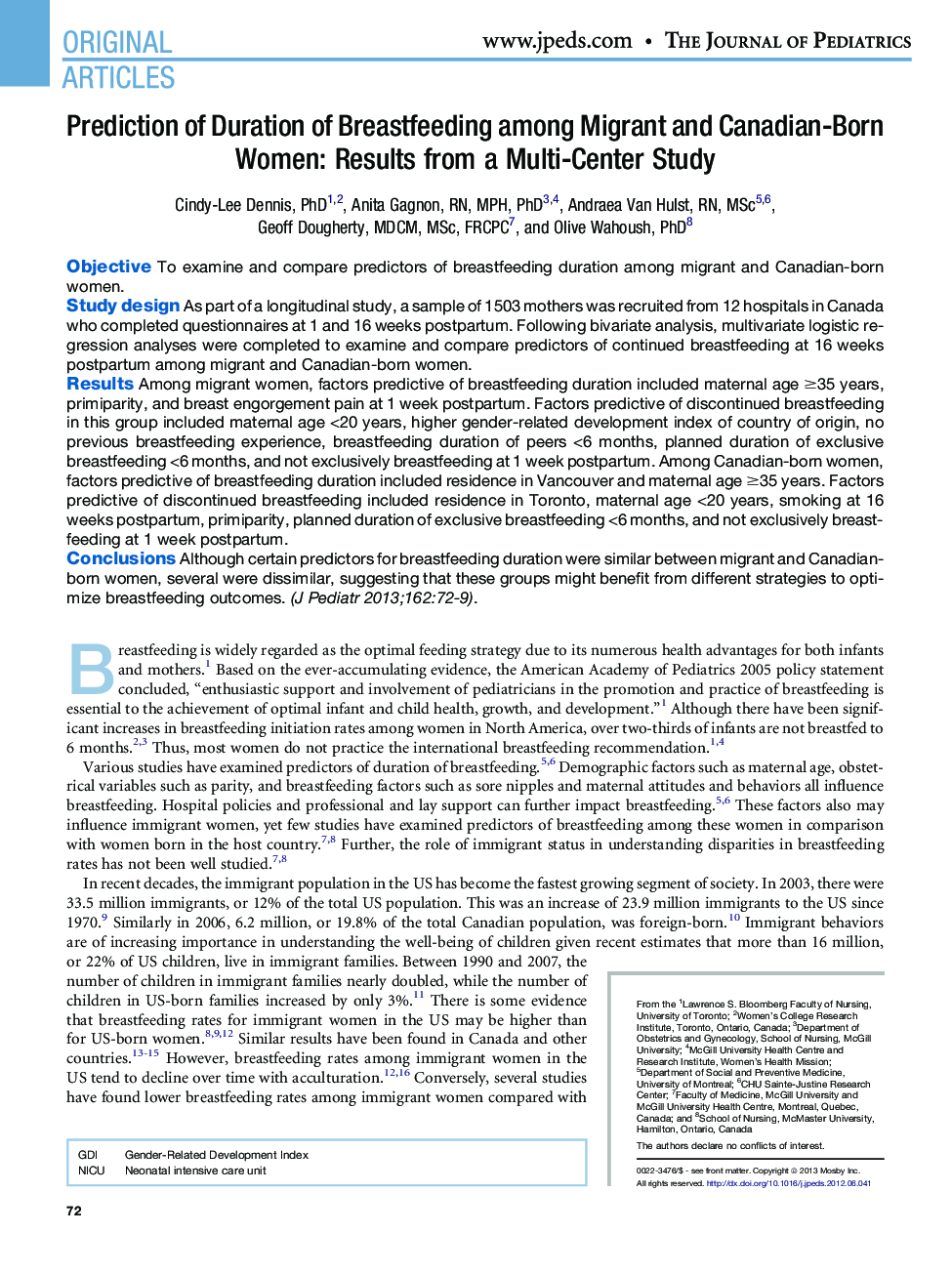| Article ID | Journal | Published Year | Pages | File Type |
|---|---|---|---|---|
| 6224324 | The Journal of Pediatrics | 2013 | 8 Pages |
ObjectiveTo examine and compare predictors of breastfeeding duration among migrant and Canadian-born women.Study designAs part of a longitudinal study, a sample of 1503 mothers was recruited from 12 hospitals in Canada who completed questionnaires at 1 and 16 weeks postpartum. Following bivariate analysis, multivariate logistic regression analyses were completed to examine and compare predictors of continued breastfeeding at 16 weeks postpartum among migrant and Canadian-born women.ResultsAmong migrant women, factors predictive of breastfeeding duration included maternal age â¥35 years, primiparity, and breast engorgement pain at 1 week postpartum. Factors predictive of discontinued breastfeeding in this group included maternal age <20 years, higher gender-related development index of country of origin, no previous breastfeeding experience, breastfeeding duration of peers <6 months, planned duration of exclusive breastfeeding <6 months, and not exclusively breastfeeding at 1 week postpartum. Among Canadian-born women, factors predictive of breastfeeding duration included residence in Vancouver and maternal age â¥35 years. Factors predictive of discontinued breastfeeding included residence in Toronto, maternal age <20 years, smoking at 16 weeks postpartum, primiparity, planned duration of exclusive breastfeeding <6 months, and not exclusively breastfeeding at 1 week postpartum.ConclusionsAlthough certain predictors for breastfeeding duration were similar between migrant and Canadian-born women, several were dissimilar, suggesting that these groups might benefit from different strategies to optimize breastfeeding outcomes.
